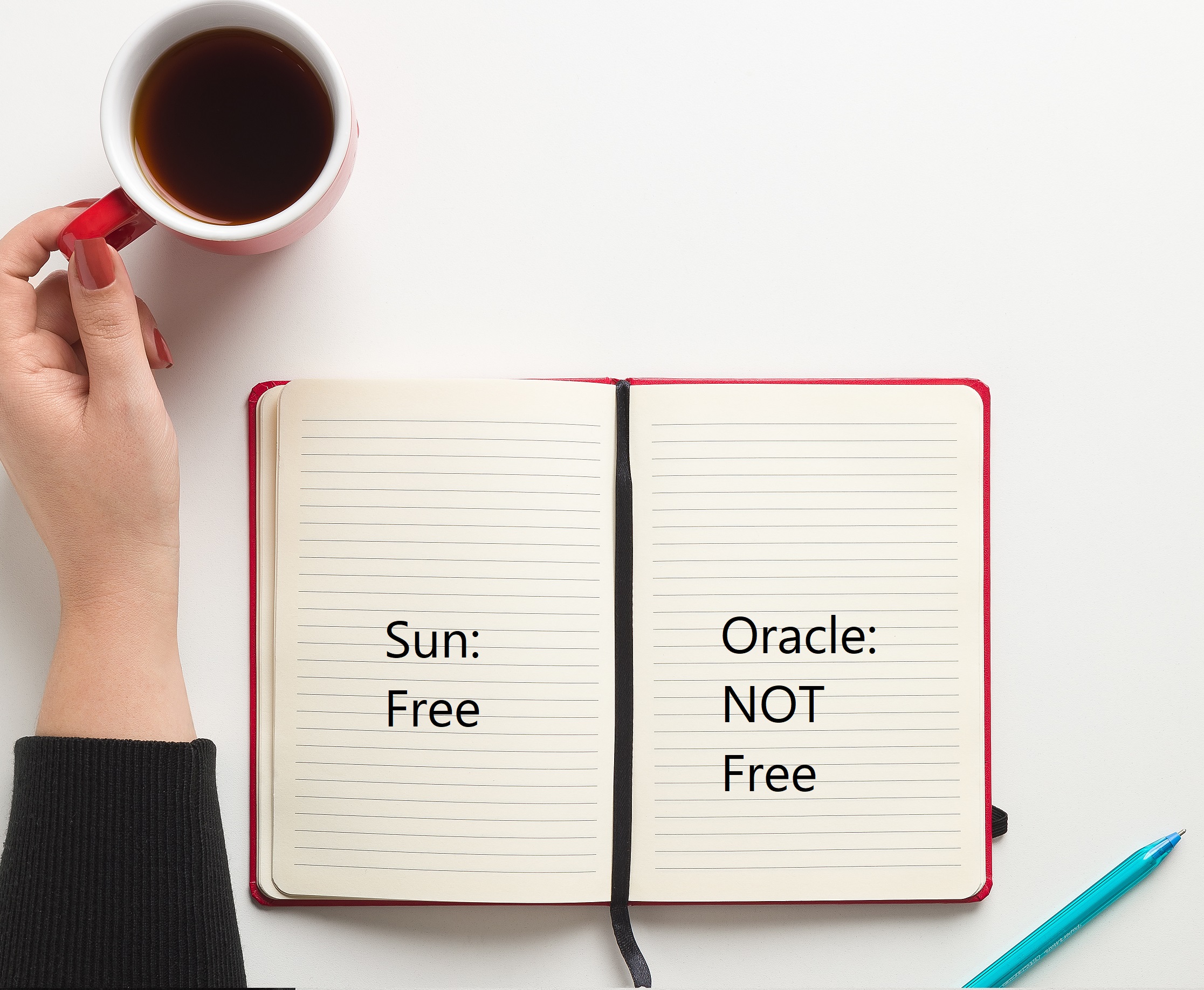HCM Customers: 3 Warning Signs When Adding On Products
The Covid-19 pandemic has caused quite a bit of upheaval for IT and HR groups (and many others) as they support the immediate needs of their user communities and employees. To that end, the HCM suppliers have the tools that companies need to facilitate these requirements, but there are some warning signs that HCM customers should be wary of. We have noticed three prevalent themes coming through the ‘pandemic buying’ that are worth noting and taking heed when you see them. 1. Your HCM provider is offering a free trial of software you don’t currently own to “assist you during these times.” When you are offered anything for free, you are right ...
Read More
Java: Like Being Free but Oracle Instead
Really, you must give credit where credit is due when it comes to creating new revenue streams. Oracle is seemingly the master at ‘making everything old, new again’ and conjuring revenue out of thin air where once there was none. With its acquisition of Sun (and by extension Java) in 2010, we should have known that it would only be a matter of time before a free platform was turned into a revenue stream. Over time, Oracle methodically added and modified the Java roadmap to lead us where we are now – the once noble and free Java SE is now lumped together with all the other Named User Plus and Processor licenses. With Java’s changes, also come ...
Read More
Twenty-Three (and counting) Free Supplier Offers for Business Use During Covid-19
If you are like me, you have been receiving an avalanche of email notifications from every company you’ve ever done business with letting you know how they are responding to the Covid-19 crisis. Did I really need to know how my auto mechanic is responding to the epidemic? Probably not at the top of my list. However, if you can get through the noise, there have been some legitimate offers to help companies support their teams and customers through the crisis. Most of these offers are in the form of free services and software for an extended period of time (30-60-90 days and more). Below, we’ve compiled a list of twenty-three companies and ...
Read More
4 Tips to Save with Microsoft Now in Covid Response
Unprecedented times for business leaders now as the gears of industry and commerce are basically at a standstill. Most companies have a complete freeze on spending and are contingency planning for things to get worse before they get better. While sometimes there is ‘opportunity in chaos’ so too is the potential to make costly mistakes in our haste to facilitate immediate needs. Today, we’ll be looking at Microsoft and some issues to consider as the economy heads for a downturn. Remote Work: Although remote/home office work is a well-established trend in many industries, others are still grappling with management and cost challenges (not to ...
Read More
Oracle 2020 Series: Audit Outlook
As 2019 drew to a close, many of you may have missed a significant development that came out of the U.S. District Court of Northern California. On December 17th, the lawsuit brought by the Sunrise Firefighter’s Pension Fund against Oracle Corporation for misleading investors on their cloud business – was dismissed. They have until February 2020 to make some changes and refile the case, but what the real take-away from this case is that we can expect ‘business as usual’ from Oracle on the audit front. To get a real sense of just how egregious and critical the audit practice was (and is) to Oracle’s revenue machine, you need only read some of ...
Read More
Countdown of Oracle's Most Egregious Terms and Conditions - Number 1: Audit Clause
Clients are well advised to include specific language governing Oracle audits. Most important is the ability to purchase any compliance licenses as a result of an audit action at the contractual price hold discounts (#12 on our Oracle's Most Egregious list), and in the event that the price hold expires, at a mutually agreeable discount at the prevailing discounts available in the market for similar deals not to be unreasonably withheld. The current contract language in the standard Oracle agreement requires clients to purchase compliance licenses at list price. In the case of a 75% price hold discount, this would mean you are acquiring the ...
Read More
NET(net) Multicloud Series Part III: Application Portability
In Part I we discussed consideration of a multicloud strategy. Pricing and product transparency were the themes for part II. In part III we address the last in this series: Application Portability. To see all three in our Multicloud eBook, please visit here. The enterprise’s application processing workloads must be compatible to portability between Cloud providers, including technology stacks that are common across all Cloud provider platforms, such as the use of application microservices and open stack services such as containers and Kubernetes. It is also important to consider how you'll integrate data and applications residing in ...
Read More
Countdown of Oracle's 12 Most Egregious Terms and Conditions - Part II: Auto Install
What is Auto-Install? Auto-Install is an executable file in the Oracle software kit that activates when a customer installs certain software and automatically loads various options that may or may not be included in the purchase price of the acquired software. Why is it Important? It’s important because generally the people who install the Oracle software are not contextually aware of all the intricacies of software licensing, nor perhaps are they even aware of the particulars of the commercial arrangement between your company and Oracle. They are, however, generally fans of the Oracle technology, and want all the added features, so when ...
Read More
NET(net) Multicloud Series, Part II: Pricing and Product Transparency
If you missed Part I - start here. Is a Cloud Broker right for you? A Cloud Broker by definition is an entity that manages the use, performance and delivery of cloud services, and negotiates relationships between cloud providers and cloud consumers. As cloud computing evolves, the integration of cloud services may be too complex for Cloud consumers to manage alone. A Cloud Broker can also be in a unique position to collect, analyze and conduct opportunity assessments on pricing that will be key to a multicloud or Cloud Arbitrage strategy. Generally, cloud arbitrage is the practice of taking advantage of a price difference between two or more ...
Read More
Oracle's Most Egregious Terms and Conditions: Part 3 - Business Transaction Protection
Business Transaction Protection is language in the agreement that provides some much needed flexibility in the event of a business transaction that significantly alters the value of the Oracle software deployment Why is it Important? These business transactions are often the source of many audit demands, and the standard Oracle language is vague and limited on what rights a customer has with regard to these types of transactions. We suggest clients include language in the agreement that gives added protections and flexibility for business transactions like mergers, acquisitions, divestitures, carve-outs, etc. Transition Service Agreements ...
Read More









.jpg)



















